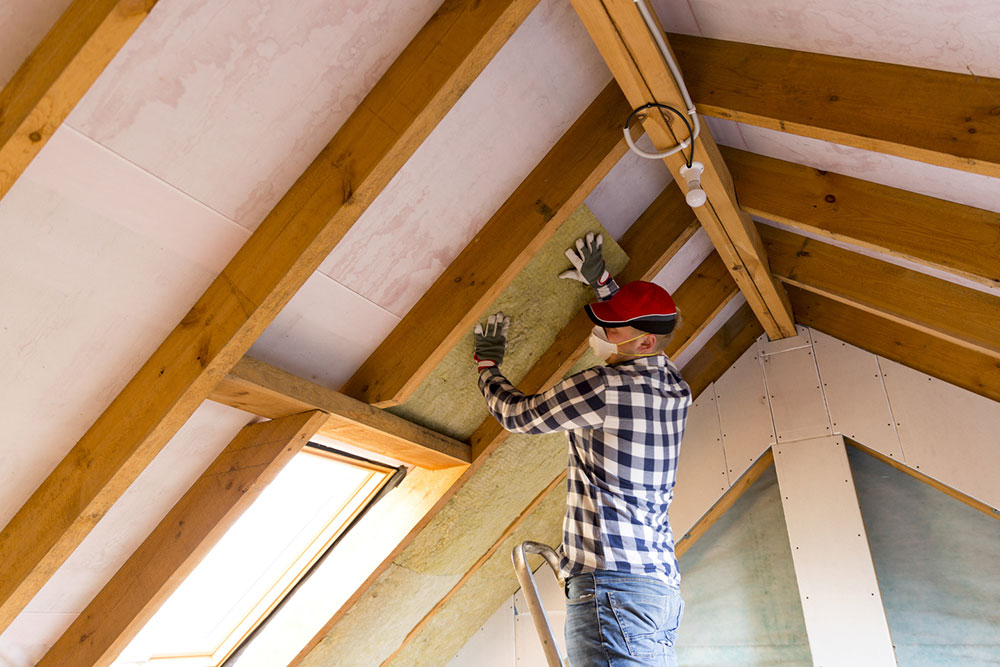7 Types of Roof Insulation to Consider
The roof helps seal the house from above and maintain the temperature inside. According to studies, most of the heat from the home escapes through the roof, so insulating it is very important. Insulation not only works to keep the home warm during winter but also helps block out the sun’s rays in the summer, keeping the room cool. Before discussing the types of roofing insulation available, let’s understand how insulation works.
How does roof insulation work?
Insulation prevents the transfer of heat through the roof. When someone calls a roof insulation company, they install a barrier on the roof.

Types of roofing insulation
Local roofers may use different materials to create the insulation barrier.
- Spray foam
Spray polyurethane foam, or SPF, is a common type of insulation for attics and walls. The foam may be either low, medium, or high density. High-density spray foam is used in roofing insulation because it resists strong winds. The low and medium-grade options are mostly used on walls and unvented attics.
Tiny glass particles are woven into a coarse fabric to make fiberglass batts. Large sheets of these batts are installed on the roof to insulate it and prevent energy loss. The sheets trap air pockets and stop the heat from escaping the home during winter. Similarly, during the summer, the hot air from outside cannot enter the house. While fiberglass batt installation can be done as a DIY project, hiring a local roofer is better. A professional understands the process well and can inspect the roof thoroughly before starting the job.
A gypsum cover board makes the roof stronger. It helps protect against weather conditions like wind, fire, and even hail. Installing this insulation board involves a multistage process, which may also require using other materials. A professional will be able to help with this multistage process. It is an effective solution and costs less than other insulation options.
Manufactured in factories, these panels consist of foam insulation between two pieces of oriented strand board. This type of insulation is easy to install and provides improved indoor air quality when airtight. It is also thermal and moisture-resistant. Furthermore, the panels increase the roof’s structural strength when installed correctly.
High-density polyiso cover boards are made using compressed polyisocyanurate and are covered by fiberglass sheets. These boards serve as high-density, strong insulators that increase thermal resistance and prevent heat transfer inside the home. One of the biggest pros of the cover boards is that they are fire, moisture, and mold resistant. However, they may not be the best option for places where the temperature drops below 50 degrees Fahrenheit.
This insulation is also known as blown-in insulation. It is a type of fiberglass insulation used especially for attics and wall cavities. One must use a special machine to install it in cavities and empty spaces. Loose-fill insulation insulates the roof and minimizes heat transfer by trapping the air. It is very effective when installed properly and can be used anywhere in the home. However, professionals should handle this type of insulation as homeowners will likely make mistakes when DIYing the project.
This heat-treated stone insulator is usually used as a cover board for other insulators. Many people love this kind of insulation because it is lightweight, pliable, and can be used in tight spaces. Perlite cover boards are also fire resistant, so one can use them to fireproof chimneys, rooms, and other areas. Another advantage is that these boards are resistant to pests and decay.
Finding a roof insulation company
Since roof insulation is a big task, one should call a professional and avoid experimenting. One of the best ways to find the top roofing insulation services nearby is to ask friends and family members for references. Contractors referred by others will likely be good at their work. While shortlisting options, one should also check whether the roofing company has the required licenses, certifications, and insurance. Furthermore, it helps to set a budget and compare quotes from multiple providers.
After finalizing a contractor, one should have a detailed conversation with them about the scope of work and timeline. Homeowners can also discuss any limitations or issues that may make the job challenging and potential ways to resolve them. Furthermore, there could be an inspection to ensure there are no other structural or other problems like mold or mildew, which need to be treated before the insulation process starts.

